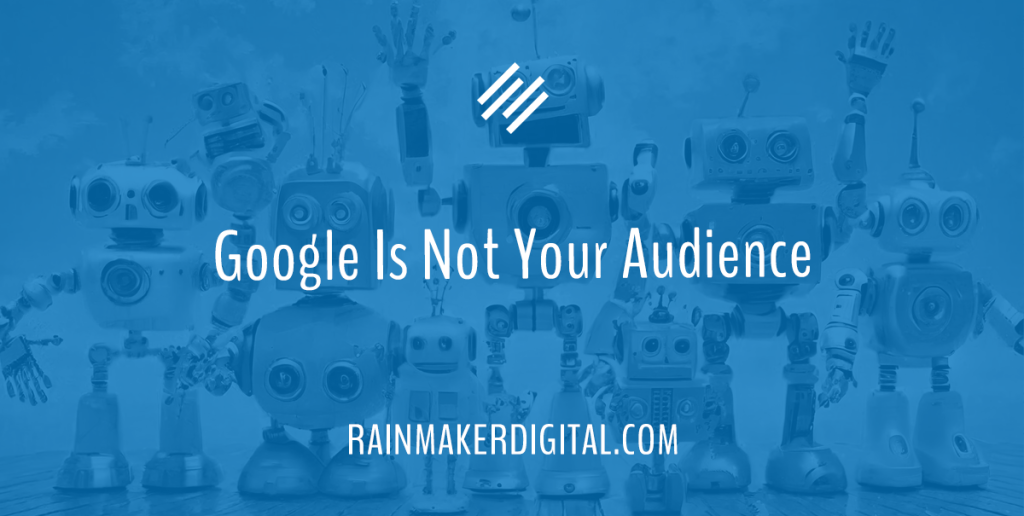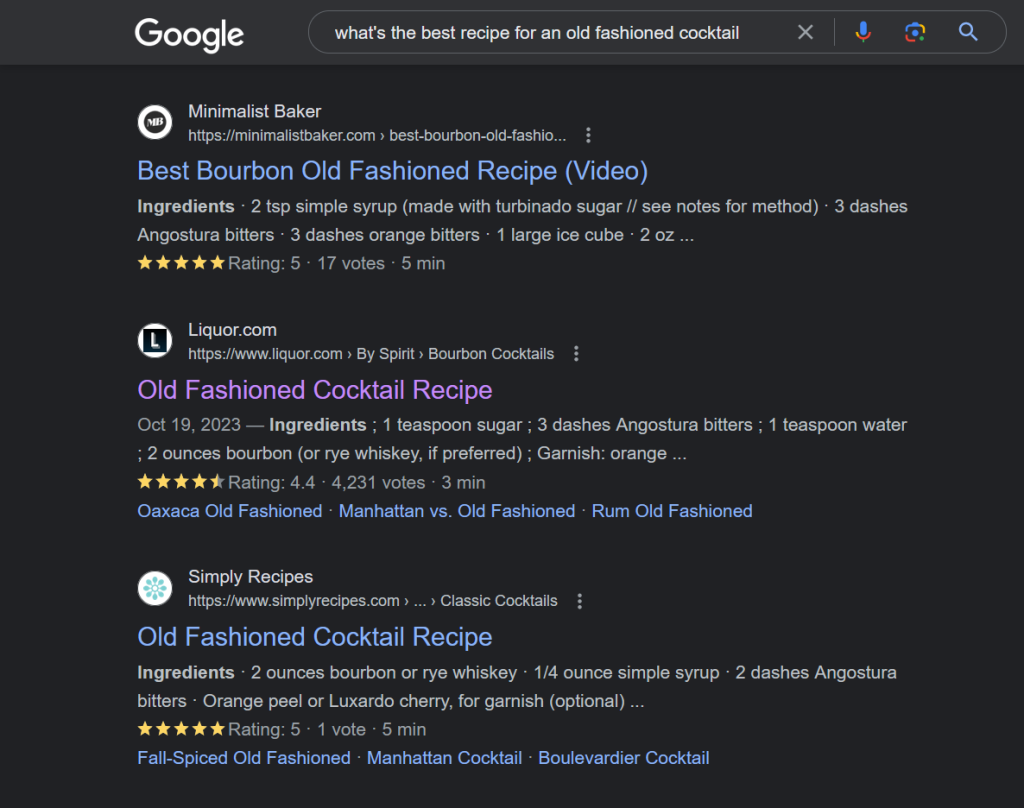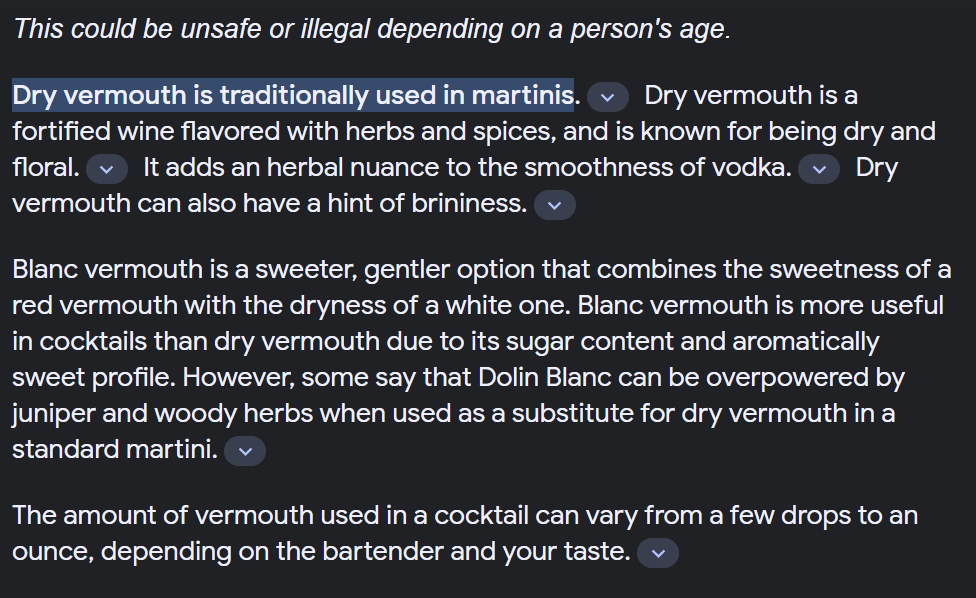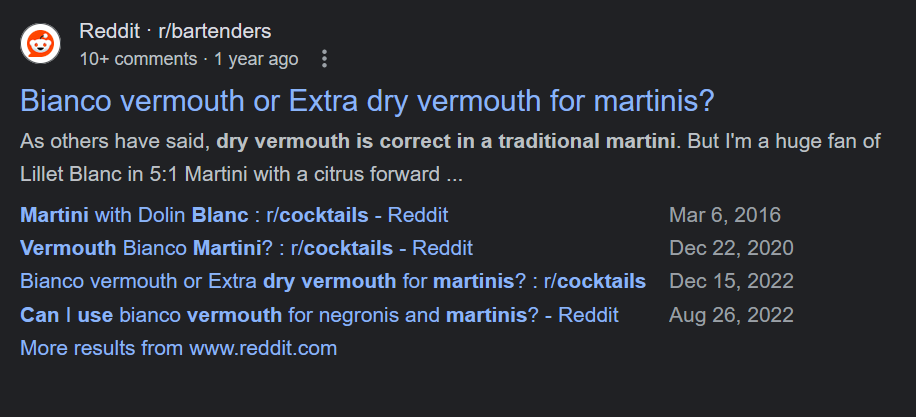I’ve only seen a tornado in person once. But for a couple of months each year, they’re constantly on my mind.
Every spring here in Oklahoma, our local news channels are on high alert for the storms that spawn tornadoes. Each line of clouds on the horizon is potential trouble; there’s a tenseness to the air.
That’s what SEO feels like right now.
The explosion of generative AI is allowing content producers to flood Google with content at scale. SEO has made search results less useful. Adwords and “position zero” information are stealing clicks from organic content. Google’s SGE, voice and local search initiatives mean that your search engine results page (SERP) isn’t everyone else’s SERP.
Google isn’t dumb. It knows it’s losing people’s attention. That’s why it has so many irons in the fire. A lot of sites are doing SEO “right” and still not ranking where they “should be” … so with so much in flux, should optimizing for Google be your primary content goal?
No. Here’s why.
Why Does Search Exist?
In the early days of the Internet, the rapid proliferation of websites and lack of predictable discoverability meant it was hard to find anything unless you knew where to look. Trying to find information about a topic was like being dropped in the middle of New York City at midnight without a map and told to find Madison Square Garden.
People wanted to find relevant, useful information. Search engines were created to give it to them, with Google rapidly rising to the top of the heap.
Google won because it had the best technology, fastest responses and most comprehensive data. Now they’re losing market share to other solutions — Reddit, Quora, TikTok, Instagram. The fundamental issue is that marketers have been creating content for the algorithm, not the audience.
NPR’s Marketplace podcast talked about this the other day with Verge journalist Mia Sato. As she noted, “what happens to human creativity when there’s one company that is pretty much dictating how we find things on the internet?” It becomes homogenous — my boss Ed Bardwell likes to call it “the sea of sameness.” Marketers pay lip service to content quality, but for years, we’ve been creating for Google, and you can tell. People are rebelling — going back to answers created by humans for humans.
Where Google is Falling Short
Modern SEO has made it easier to find information that’s kinda-sorta what you’re looking for — but a lot harder to find something specific.
I’m a cocktail enthusiast. So when I search for things that are cocktail-related, I’m digging a little deeper than the obvious query to find good information.
For example, if you just search the basic question “what’s the best recipe for an old fashioned cocktail,” you’ll get multiple good variations on the standard recipe in the regular results. (I excluded the recipe three-pack at the top, but it also has quality results.)
None of these are getting into the weeds on “this is why you’ll get something totally different from older bartenders,” or “Wisconsin doesn’t make it like this.” You’re getting the answer to your query. All good.
But suppose I dig just one level deeper.
I like martinis, but it took me a while to find a recipe I liked (a non-traditional one, which uses blanc instead of dry vermouth). I want to find out if this is a commonly-accepted variant, so I search “should you use blanc or dry vermouth in a martini” and get Reddit, Quora, and a featured snippet from some grocery store in Maryland at the top. The moment I scroll down it rapidly leaves the territory of the question I asked and just gets into defining what blanc vermouth is and what you can do with it.
Google, I don’t need to know if “blanc vermouth can integrate extremely well with most spirits.” I need to know about MARTINIS. I can click through and assemble a narrative that makes sense, but this is general knowledge in the cocktail community and should be easy to find with Google. My guess is not enough people search for it for SEOs to optimize for the term.
That’s why when I have questions like this, I don’t go to Google. I go to Reddit. Or I drop into the Educated Barfly Discord server. Or I talk to one of the U.S. Bartenders’ Guild people I know.
My actions are what Google is combatting.
SEO best practices have sowed the seeds of their own destruction — they made search results homogenous. Instead of connecting with the audience, marketers have been chasing the algorithm. The end result is these “kinda-sorta” results and a reliance on other platforms for real-world answers.
The Future of Search
Google isn’t a reliable source of meaningful information anymore. The result? Smaller communities and individual creators that offer answers are growing more popular. In some ways, it’s a throwback to the early Internet — Usenet, IRC, newsgroups, small forums and enthusiast sites. It’s a return to the authority of the individual over the platform.
Google’s not sitting on its hands. It’s already incorporating more results from people-first, topic-based platforms and using relevant information for featured snippets. It’s also incorporating AI in its Search Generative Experience experiment. When I ask the same vermouth question from above to SGE, I get the following:
This is all true, though it swings from too broad (“more useful”) to too specific (the material after “some say” is ripped word for word from one of the top search results). And it does answer the question. But it still doesn’t give me the depth that I want — meanwhile, the first Reddit result from the search does.
“So why not go to Reddit?” you ask. Because Reddit’s search engine doesn’t work as well as Google.
My top results on Reddit for the query look like this:
Not very useful. Though posting in the /r/cocktails subreddit would probably be very helpful, looking at these results.
But Google’s Reddit results are the most helpful thing I’ve found so far.
I’m a little biased; the top post is literally my favorite martini recipe. But all of these are highly relevant and the discussion is good. The problem, for marketers who are optimizing for SEO, is that it’s Reddit taking prime position (and not your site). And the problem from Google’s perspective is that Reddit is taking its traffic; the moment Reddit figures out its search and gets people to stay on the platform, Google will lose that audience.
Google isn’t going anywhere. In the challenge to stay on top it’s changing optimization algorithms fast. But the old ways of getting Google to notice you aren’t working. SEO has changed before and will continue to change — and it may not ever be as effective as it was in the early halcyon days of Google dominance.
What Google’s Struggle Means for Your Business
The reason we’re in this situation in the first place is that marketers have gotten so used to trying to game the system that we’ve forgotten who our audience is.
Google is not your audience. Google is the middleman.
Yes, Google matters. Yes, you should make sure your content is organized, helpful and readable, with relevant keywords, good tagging and meta descriptions. But that cannot be your primary goal.
Focus on what builds your authenticity and authority with your audience — don’t write for Google. Future search engine success (and marketing success) revolves around relevant, useful content. Your audience is the final authority, not any platform.
Put people first, and regardless of what happens with Google, you’ll be in a position to succeed.
Want more information on how to do that? We regularly publish articles that teach you how to be successful in marketing, whether you’re a full-time marketer or not. Sign up for the Dispatch today and get all that information in your inbox.
Best Regards,
David Brandon
Copywriter
Rainmaker Digital Services





